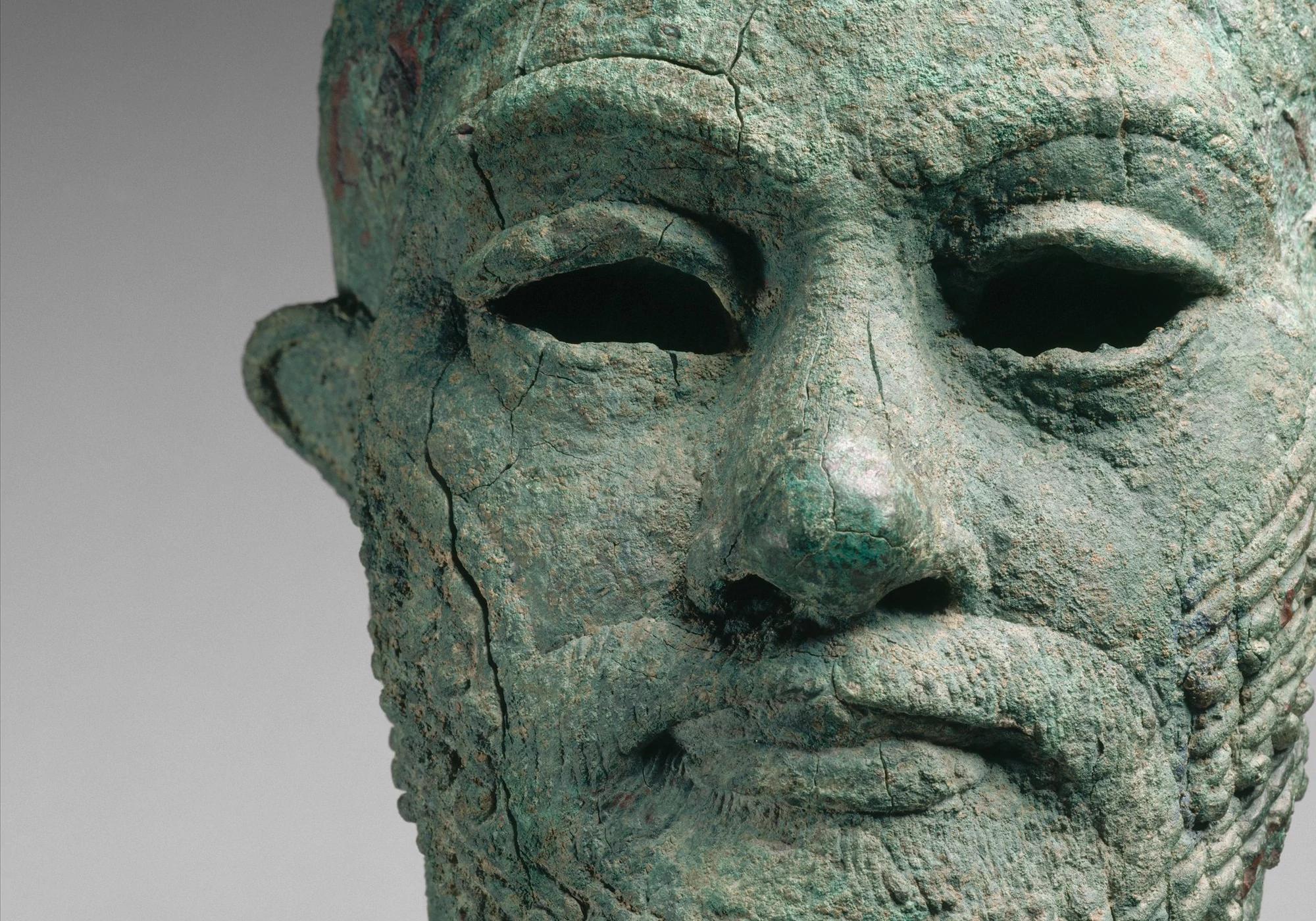
Mesopotamia
Poetry, war, and the invention of law
3500 – 1000BCETHE destiny was fulfilled which the father of the gods, Enlil of the mountain, had decreed for Gilgamesh: ‘In nether-earth the darkness will show him a light: of mankind, all that are known, none will leave a monument for generations to come to compare with his. The heroes, the wise men, like the new moon have their waxing and waning. Men will say, “Who has ever ruled with might and with power like him?” As in the dark month, the month of shadows, so without him there is no light. O Gilgamesh, this was the meaning of your dream. You were given the kingship, such was your destiny, everlasting life was not your destiny. Because of this do not be sad at heart, do not be grieved or oppressed; he has given you power to bind and to loose, to be the darkness and the light of mankind. He has given unexampled supremacy over the people, victory in battle from which no fugitive returns, in forays and assaults from which there is no going back. But do not abuse this power, deal justly with your servants in the palace, deal justly before the face of the Sun.'
The king has laid himself down and will not rise again,
The Lord of Kullab will not rise again;
He overcame evil, he will not come again;
Though he was strong of arm he will not rise again;
He had wisdom and a comely face, he will not come again;
He is gone into the mountain, he will not come again;
On the bed of fate he lies, he will not rise again,
Front the couch of many colours he will not come again.
The people of the city, great and small, are not silent; they lift up, the lament, all men of flesh and blood lift up the lament. Fate has spoken; like a hooked fish he lies stretched on the bed, like a gazelle that is caught in a noose. Inhuman Namtar is heavy upon him, Namtar that has neither hand nor foot, that drinks no water and eats no meat.
For Gilgamesh, son of Ninsun, they weighed out their offerings; his dear wife, his son, his concubine, his musicians, his jester, and all his household; his servants, his stewards, all who lived in the palace weighed out their offerings for Gilgamesh the son of Ninsun, the heart of Uruk. They weighed out their offerings to Ereshkigal, the Queen of Death, and to all the gods of the dead. To Namtar, who is fate, they weighed out the offering. Bread for Ned the Keeper of the Gate, bread for Ningizzida the god of the serpent, the lord of the Tree of Life; for Dumuzi also, the young shepherd, for Enki and Ninki, for Endukugga and Nindukugga, for Enmul and Nimnul, all the ancestral gods, forbears of Enlil. A feast for Shulpae the god of feasting. For Samuqan, god of the herds, for die mother Ninhursag, and the gods of creation in the place of creation, for the host of heaven, priest and priestess weighed out the offering of the dead.
Gilgamesh, the son of Ninsun, lies in the tomb. At the place of offerings he weighed the bread-offering, at the place of libation he poured out the wine. In those days the lord Gilgamesh departed, the son of Ninsun, the kung, peerless, without an equal among men, who did not neglect Enlil his master. O Gilgamesh, lord of Kullab, great is thy praise.